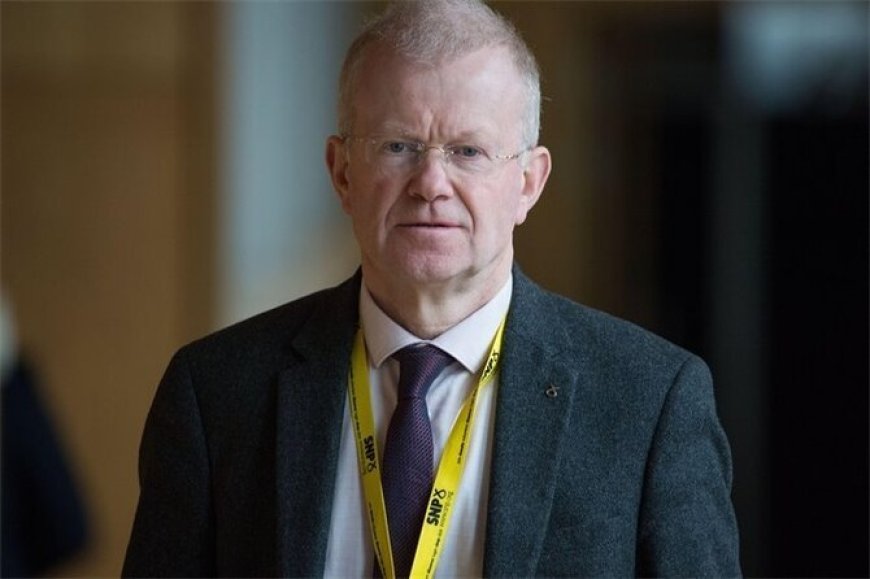John Mason's Expulsion Highlights the SNP's Internal Conflict over Gaza

Within the Scottish National Party (SNP) and beyond, the ejection of John Mason, a member of the Scottish Parliament (MSP) for Glasgow Shettleston, has generated notable debate. His comments on social media about the Israel-Gaza conflict—that Israel "would have killed 10 times as many" Palestinians if it planned to commit genocide—were denounced by his party as "utterly abhorrent" and resulted in his dismissal. The story begs significant issues on the limits of permissible political debate and the difficulty of preserving unity in a time of divided views on world wars.
Made in reaction to fellow SNP member Sandra White's claim that Israel was genocizing Gaza, Mason's remarks set off a controversy. Mason answered with his now-famous comment, white having said, "innocent children are being massacred." Many inside the party felt this was a step too far. "To flippingly dismiss the death of more than 40,000 Palestinians is completely unacceptable," an SNP spokesman said. The SNP cannot provide place for this type of bigotry. Given the close examination of the Israel-Palestine conflict, this formal denunciation demonstrates the party's increased awareness of how foreign events are covered.
For Mason as well as the SNP battling internal strife over delicate world concerns, the exile marks a momentous occasion. Growing popular sympathy for Palestinian people caught in the continuous war meant that any seeming minimization of their suffering was likely to cause reaction. Former SNP Westminster leader Ian Blackford among other party members lost no time denouncing Mason. Blackford posted on X (previously Twitter) saying, "You are not suitable for public office. Emphasizing how drastically Mason's remarks ran counter to the opinions of influential SNP members, you are an embarrassment and unfit representative of anyone.
Mason stayed by his remarks in face of popular uproar. Declaring dismay about his ban, he turned to social media to say: "I continue to believe that we should be able to tolerate a variety of views inside the party as long as we are all committed to Scottish independence." For Mason, strong debate—especially on foreign affairs—is dependent on the ability to hold different points of view inside a political party. In a Facebook post, he clarified that he felt the Israeli government had shifted from self-defense to retribution but did not believe Israel was committing genocide.
Mason's ban has begged more general issues about free speech and the boundaries of permissible political party debate. Long supporting Palestinian rights and critical of Israeli military operations, the SNP now faces the difficulty of balancing its public posture with the requirement for internal cohesiveness Critics contend that Mason's remarks crossed a moral line, trivializing the deaths of thousands of civilians in Gaza, while his supporters contend that his departure shows an intolerance for many points of view.
Still a very contentious topic globally, the Gaza conflict has been more intense recently. Discussions on the conflict are generally emotionally charged given nearly 40,000 Palestinians claimed dead and extensive destruction all around the area. But Mason's comments capture a more general challenge political leaders have in handling the matter. Genocide accusations have great moral and legal ramifications as well as weight. Some, like Sandra White, contend that Israel's conduct in Gaza qualify as genocide; others, like Mason, contest this view. Nevertheless, in a period when public awareness of violations of human rights is growing, any comment that seems to minimize such suffering could have quick and serious results.
The SNP's choice to kick Mason also draws attention to a more general society movement toward zero tolerance for rhetoric seen as minimising of major human suffering. Many nations, including Scotland, have seen political environments in recent years grow more merciless of language that deviates from generally accepted humanitarian ideals. This change is clear not only in the SNP but also across the political spectrum as parties negotiate the challenging terrain of world wars and public expectations for moral clarity.
Mason's demand for peace conversations and talks following his ban could seem to some as insufficient, too late. Still, his larger case—that Israel, with its military might—could have caused considerably more losses if it had meant genocide—points to the difficulty of analyzing conflict through the prism of intent and proportionality. These defenses, however, have done little to calm the indignation aroused by his first remarks.
The episode reminds us sharply of the dangers political leaders run when speaking on divisive world concerns. In a day when social media shapes public opinion more and more, one mistake may cause public outcry, internal party strife, and—as in Mason's case—political exile. His exile also emphasizes the SNP's will to separate itself from language that might be considered as compromising its humanitarian posture on the Gaza crisis.
The requirement of cautious, responsible communication is still as urgent as ever as the bloodshed in Gaza keeps claiming lives. Although it is debatable, the SNP's decision to kick Mason shows its dedication to making sure its members maintain a level of speech that conforms with party ideals as well as more general society expectations. The story also emphasizes the careful balance political leaders have to do while handling world crises—balancing free speech, internal unity, and the moral need to denounce human misery.













































